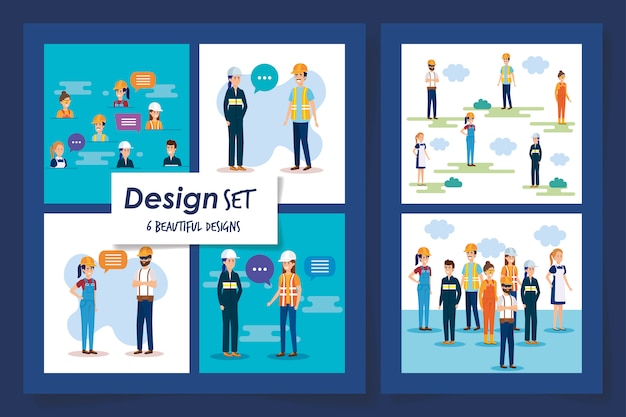Avoid Penalties: 2025 Independent Contractor Tax Updates

Staying compliant with the latest updates to independent contractor tax requirements for 2025 is crucial to avoid penalties, understanding new regulations, proper classification, and accurate reporting.
Navigating the world of independent contractor taxes can be tricky, especially with continuous updates and changing regulations. This article explains the latest updates to independent contractor tax requirements for 2025, helping you avoid penalties and stay compliant.
Understanding Independent Contractor Status
Understanding who qualifies as an independent contractor is essential. The IRS has specific criteria to determine whether a worker is an employee or an independent contractor. Misclassifying workers can lead to significant penalties and back taxes.
IRS Definition of Independent Contractor
The IRS defines an independent contractor as someone who is self-employed and controls their work. This means they decide how, when, and where to perform their services.
Factors that indicate independent contractor status include:
- The worker controls the means and methods of their work.
- The worker provides their own tools and equipment.
- The worker has the opportunity for profit or loss.
- The worker is paid by the job, not by the hour.
Why Proper Classification Matters
Proper classification is crucial because it affects how taxes are handled. Employees have taxes withheld from their paychecks, while independent contractors are responsible for paying their own self-employment taxes.

Misclassifying an employee as an independent contractor can lead to penalties, including:
- Back taxes and interest
- Penalties for failure to withhold and pay employment taxes
- Potential legal action from the misclassified worker
Understanding the IRS guidelines for classification is a critical first step in tax compliance for independent contractors. Correct classification ensures you avoid potential pitfalls and penalties.
Key Tax Forms for Independent Contractors
Independent contractors need to be familiar with several key tax forms to accurately report their income and expenses. These forms help the IRS track income and ensure compliance with tax laws.
Form 1099-NEC: What You Need to Know
Form 1099-NEC, Nonemployee Compensation, is used to report payments made to independent contractors. If you earned $600 or more from a client, they are required to send you a 1099-NEC form.
Key aspects of Form 1099-NEC include:
- Reporting payments for services provided as an independent contractor
- The payer (client) must file the form with the IRS and provide a copy to the contractor by January 31
- The contractor uses the information on Form 1099-NEC to report income on their tax return
Schedule C: Reporting Profit or Loss From Business
Schedule C is used to report the profit or loss from your business as an independent contractor. This form allows you to deduct business expenses from your income, reducing your taxable income.
Important points about Schedule C include:
- Reporting all income and expenses related to your business
- Deducting business expenses such as office supplies, travel, and marketing costs
- Calculating your net profit or loss, which is then transferred to your individual tax return
Using the correct tax forms is crucial for independent contractors to accurately report their financial activities and comply with IRS regulations. Proper use of Form 1099-NEC and Schedule C ensures accurate tax reporting.
Deductible Expenses for Independent Contractors
One of the benefits of being an independent contractor is the ability to deduct business-related expenses. Deductions lower your taxable income, reducing your overall tax liability.
Common Business Deductions
Several common business expenses can be deducted by independent contractors.
These including:
- Office Supplies: Expenses for pens, paper, and other supplies used in your business
- Home Office Deduction: If you use a portion of your home exclusively for business, you may be able to deduct home-related expenses
- Travel Expenses: Costs associated with business-related travel, such as transportation, lodging, and meals
- Education: Cost of educational expenses that maintain or improve job skills
Maximizing Your Deductions
To maximize your deductions, keep detailed records of all business expenses. Documentation is essential in case of an audit.
Tips for maximizing deductions:
- Track all expenses throughout the year using accounting software or spreadsheets
- Keep receipts and documentation for all deductions
- Consult with a tax professional to ensure you’re taking all eligible deductions

Understanding and utilizing deductible expenses can significantly reduce your tax burden as an independent contractor. Proper record-keeping ensures you can take advantage of all eligible deductions.
Estimated Taxes: Paying as You Go
Unlike employees whose taxes are withheld from their paychecks, independent contractors are responsible for paying estimated taxes throughout the year. This ensures that you meet your tax obligations and avoid penalties.
Understanding Estimated Taxes
Estimated taxes are payments made to the IRS throughout the year to cover income tax, self-employment tax, and other taxes.
Key points about estimated taxes:
- Independent contractors typically pay estimated taxes quarterly
- The payments are due on specific dates throughout the year
- Failure to pay estimated taxes can result in penalties
Calculating and Paying Estimated Taxes
To calculate estimated taxes, estimate your expected income and deductions for the year. Use Form 1040-ES to calculate your estimated tax liability.
Methods for paying estimated taxes:
You can pay taxes by mail using a voucher from Form 1040-ES, or online through the IRS website or using the IRS2Go mobile app. Using Electronic Funds Withdrawal, you can pay through Direct Pay, or using a credit card, debit card, or digital wallet
Paying estimated taxes regularly helps independent contractors stay compliant and avoid penalties. Accurate calculation and timely payments are essential for tax compliance.
Common Mistakes to Avoid
Independent contractors often make common mistakes that can lead to IRS scrutiny and penalties. Avoiding these errors can save you time, money, and stress.
Failing to Keep Accurate Records
One of the most common mistakes is failing to keep accurate records of income and expenses. Without proper documentation, it’s difficult to justify deductions or accurately report income.
Tips for record-keeping:
- Use accounting software or spreadsheets to track income and expenses
- Keep receipts, invoices, and other documentation for all transactions
- Regularly reconcile your records to ensure accuracy
Mixing Business and Personal Expenses
Mixing business and personal expenses can complicate your tax return and raise red flags with the IRS. Always keep these separate.
Best practices for separating expenses:
- Use a separate bank account and credit card for business transactions
- Clearly label all expenses as either business or personal
- Avoid using business funds for personal expenses
Avoiding common mistakes is essential for independent contractors to maintain tax compliance and avoid penalties. Careful record-keeping and separation of expenses are key to success.
Staying Updated on Tax Law Changes
Tax laws and regulations are constantly changing, so it’s crucial for independent contractors to stay informed. Keeping up with the latest updates ensures compliance and helps you avoid penalties.
Resources for Tax Information
Several resources provide updates and information on tax law changes.
Reliable sources include:
- IRS Website: The IRS website (www.irs.gov) is the official source for tax information
- Tax Professionals: CPAs and tax attorneys can provide guidance and advice on tax matters
- Professional Organizations: Organizations like the National Association of Tax Professionals offer resources and updates
Seeking Professional Advice
Consulting with a tax professional can provide personalized advice and help you navigate complex tax issues.
Benefits of seeking professional advice:
- Expert guidance on tax planning and compliance
- Assistance with tax preparation and filing
- Representation in case of an audit
Staying informed and seeking professional advice are essential for independent contractors to maintain tax compliance and avoid penalties. By following these steps, you can navigate the complexities of contractor taxes with confidence.
| Key Point | Brief Description |
|---|---|
| 🔑 Independent Contractor Status | Understand the IRS criteria for classifying workers to avoid misclassification penalties. |
| 📝 Key Tax Forms | Use Form 1099-NEC and Schedule C to report income and deduct business expenses accurately. |
| 💸 Deductible Expenses | Maximize deductions such as office supplies, home office, and travel by keeping detailed records. |
| 📅 Estimated Taxes | Pay estimated taxes quarterly to avoid penalties for underpayment of income tax. |
Frequently Asked Questions (FAQ)
▼
An employee has taxes withheld from their paycheck and receives benefits. An independent contractor controls their work and is responsible for their own taxes.
▼
Form 1099-NEC reports payments made to independent contractors who earned $600 or more from a client.
▼
Yes, you can deduct home office expenses if you use a portion of your home exclusively for business.
▼
Independent contractors typically pay estimated taxes quarterly to the IRS.
▼
The IRS website (www.irs.gov) is the official source for up-to-date tax information and regulations.
Conclusion
Understanding the latest updates to independent contractor tax requirements for 2025 is essential for avoiding penalties and maintaining compliance. By staying informed and seeking professional advice when needed, independent contractors can navigate the complexities of tax law with confidence.
